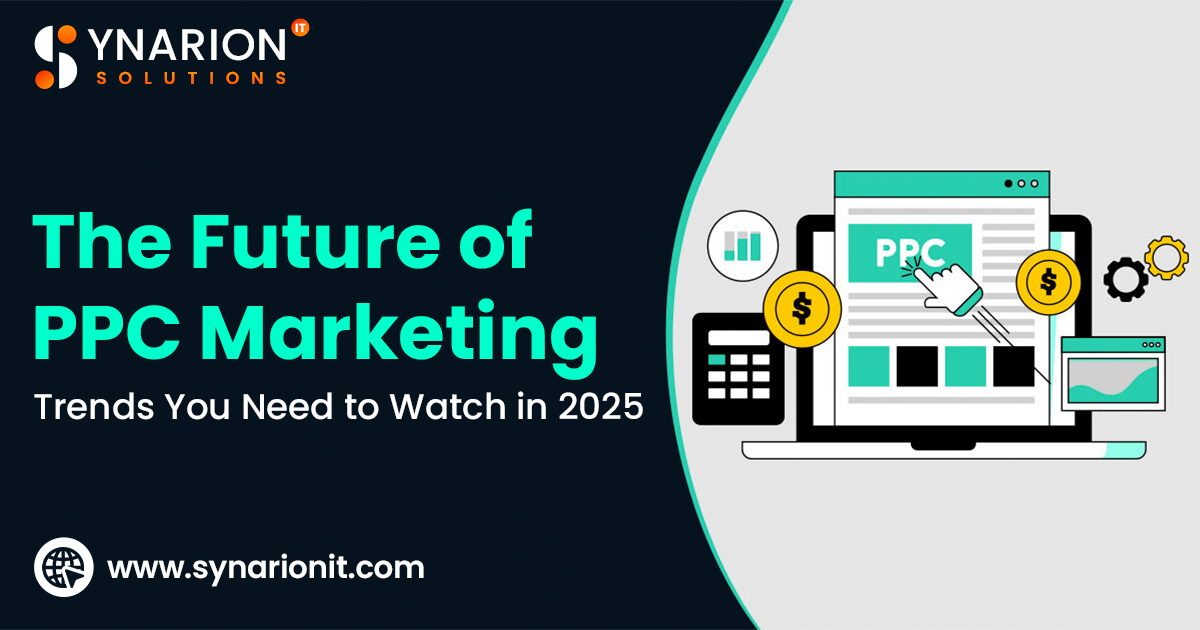
Introduction
Pay-Per-Click (PPC) marketing has been one of the most powerful tools in digital advertising for years. As we look ahead to 2025, it’s clear that the landscape of PPC marketing is evolving rapidly. With new technologies, changing user behaviors, and an ever-growing range of platforms, the future of PPC marketing is set to be both exciting and challenging. For businesses relying on PPC marketing services and PPC marketing companies, staying ahead of the curve will be critical to maintaining a competitive edge. Here are some key trends to watch in the world of PPC marketing in 2025.
Automation and AI Integration
Artificial intelligence (AI) and machine learning have already begun to shape PPC campaigns, but by 2025, their impact will be far more significant. PPC marketing companies will increasingly rely on AI to manage and optimize campaigns in real-time, making decisions based on vast amounts of data much faster and more accurately than human teams could.
Automated bidding strategies, predictive analytics, and dynamic ad creation will become the norm. These technologies will allow marketers to reach more relevant audiences with highly personalized ads, while reducing manual intervention. With AI’s predictive capabilities, businesses will be able to forecast trends and adjust campaigns with precision, improving ROI and reducing ad spend wastage.
Voice Search Optimization
As voice-activated devices like smart speakers continue to gain popularity, voice search optimization is set to become a crucial part of PPC strategies in 2025. People increasingly use voice commands to search for products, services, and information, which means that search engines will be refining their algorithms to deliver voice-search-friendly results.
PPC marketing services will need to adapt by creating ads that are tailored for voice search queries, which tend to be longer and more conversational than traditional text searches. Advertisers will need to rethink their keyword strategies and focus on natural language processing (NLP) to ensure that their ads are showing up in voice search results.
Video Ads on the Rise
Video marketing is growing at an unprecedented rate, and PPC is no exception. By 2025, video ads will become an essential part of PPC campaigns, as more consumers prefer engaging with video content over static images or text-based ads. Platforms like YouTube, TikTok, and even Instagram will offer new ad formats and targeting options for video-based campaigns.
PPC marketing companies will need to develop creative video content that resonates with their target audience, integrating calls to action (CTAs) seamlessly into their video ads. Interactive video ads will also become a major trend, allowing consumers to engage directly with the content, further enhancing conversion rates.
Privacy Regulations and Data Transparency
As privacy concerns continue to grow, businesses will have to navigate an increasingly complex landscape of regulations, including GDPR, CCPA, and others expected to emerge. PPC marketing services will need to ensure they are compliant with these regulations, ensuring that user data is handled ethically and transparently.
The future of PPC advertising will require marketers to rethink how they gather, store, and use data. With increasing limitations on third-party cookies and other tracking methods, first-party data will become even more valuable. Advertisers will need to focus on building trust with their audience, providing transparency around how their data is used.
Cross-Platform and Omnichannel Campaigns
Consumers now engage with brands across multiple devices and platforms, from smartphones and desktops to social media apps and streaming services. As a result, PPC marketing companies will need to shift towards cross-platform and omnichannel strategies to ensure consistent messaging and cohesive user experiences.
By 2025, we can expect a more integrated approach where businesses will seamlessly target users across various platforms—search engines, social media, websites, and even mobile apps—using a unified strategy. These omnichannel campaigns will leverage customer journey data to deliver personalized and relevant ads at the right time and place.
Augmented Reality (AR) and Interactive Ads
As AR technology advances, it will begin to play a significant role in PPC advertising. By 2025, businesses may use AR ads to allow customers to visualize products in real-time before purchasing. Imagine trying on virtual clothing or placing furniture in your home through your phone before making a buying decision—all within a paid ad experience.
This immersive form of advertising will revolutionize PPC campaigns, giving brands the opportunity to create highly interactive and engaging ads. PPC marketing services will need to develop creative strategies around these new technologies to enhance user engagement and boost conversion rates.
Social Commerce and Shoppable Ads
Social media platforms have long been used for brand awareness, but social commerce is set to take over in the next few years. Platforms like Instagram, Facebook, and Pinterest are already making strides toward fully integrated shopping experiences, where users can purchase products directly through ads.
PPC marketing company will need to focus on creating shoppable ads that integrate seamlessly into social media platforms, offering a frictionless path from discovery to purchase. This trend will also require an increased focus on visual and mobile-first ad strategies, as more consumers make purchases through social media and mobile devices.
Conclusion
The future of PPC marketing in 2025 holds immense potential for innovation and growth. With advancements in AI, voice search, video content, and emerging technologies like augmented reality, businesses will need to stay ahead of the curve by adapting to new trends and incorporating them into their PPC strategies. By partnering with a forward-thinking PPC marketing company, brands can ensure they’re ready for the next wave of digital advertising, driving results and staying competitive in an increasingly digital world.